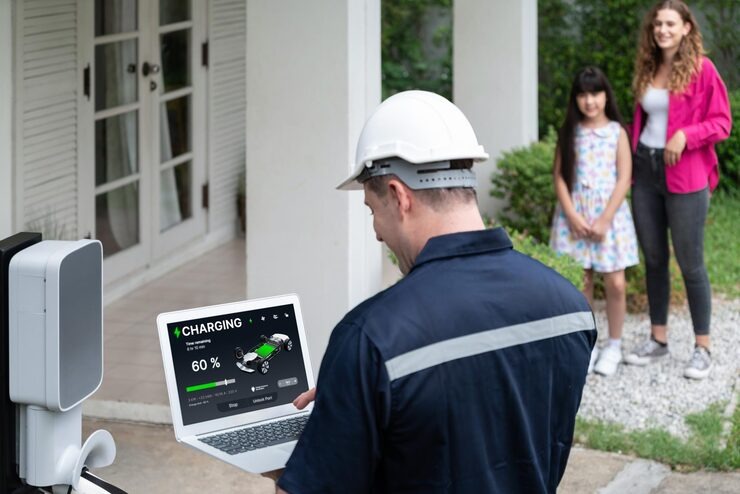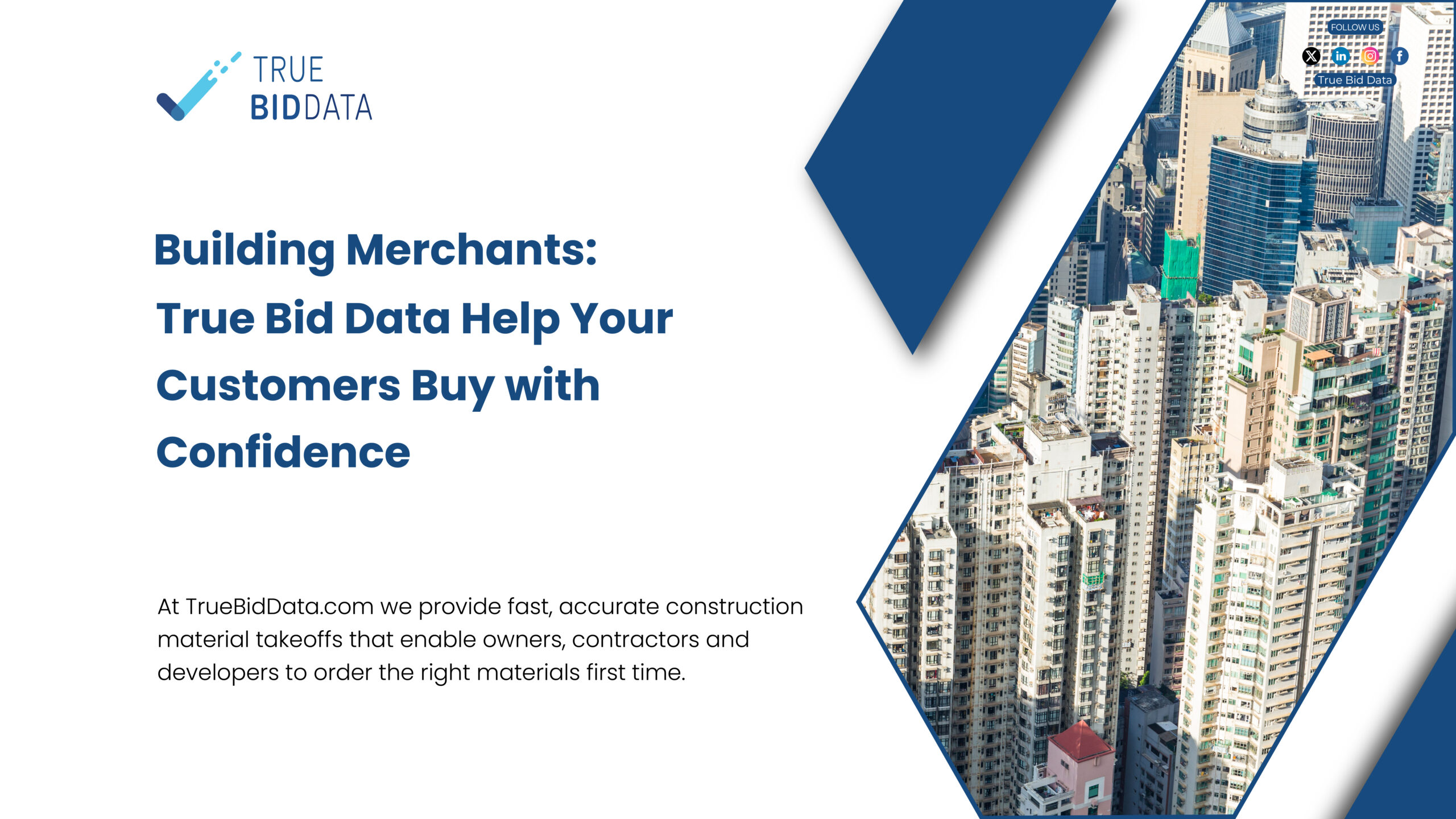
The cost estimation of building construction (building construction) in New York City demands precision, adaptability, and real-time insight. With market volatility, material inflation, and urban regulations shaping every project, traditional estimation methods no longer suffice.
At True Bid Data, the focus is on how analytics and digital strategy turn complex data into actionable intelligence. By leveraging machine learning, predictive analytics, and visualization tools, firms can move beyond manual calculations to generate transparent, data-backed cost forecasts.
In a city where every project decision impacts profitability, integrating analytics into cost estimation is not optional—it’s essential for sustainable growth.
Why Data Analytics Matters in NYC Construction
Data analytics empowers estimators to analyze thousands of variables simultaneously—ranging from material costs and weather data to subcontractor productivity and local market fluctuations.
For instance, data models can evaluate:
- Material cost trends across boroughs (Manhattan, Queens, Bronx, Brooklyn, Staten Island).
- Historical bid data to identify pricing benchmarks.
- Labor market insights based on demand and union activity.
By analyzing these patterns, NYC construction firms can predict how emerging trends affect costs long before they impact budgets. True Bid Data uses this analytical approach to help builders plan smarter, bid more competitively, and minimize uncertainty.
Building Predictive Accuracy Through Machine Learning
Machine learning has become a cornerstone of cost estimation of building construction in large urban environments like New York. Predictive algorithms continuously learn from past project data refining cost models to reflect real-world conditions.
For example, a model might detect that construction projects in Midtown consistently exceed initial cost estimates due to transportation bottlenecks or zoning delays. The system then adjusts future estimates accordingly, preventing repeat miscalculations.
This continuous learning cycle creates a predictive advantage offering cost foresight that’s not just accurate today, but adaptive to tomorrow’s changes.
Digital Strategy and Integration Across Construction Systems
A strong digital strategy ensures that cost estimation data is not siloed but shared across departments and partners. True Bid Data emphasizes integrating estimation systems with digital project management platforms, creating an interconnected data ecosystem.
This integration enables:
- Real-time budget tracking aligned with procurement data.
- Automatic updates when design changes affect cost inputs.
- Collaborative dashboards for financial and operational alignment.
When digital strategy meets analytics, every decision from design revision to contractor selection—is backed by unified data. This synergy reduces errors, accelerates decision-making, and enhances accountability across the construction value chain.
The Role of Geospatial Data in NYC Construction Projects
In New York City, location directly influences cost. Geospatial data adds contextual intelligence to cost estimation, accounting for site-specific factors like:
- Accessibility and delivery constraints in dense urban zones.
- Proximity to suppliers and workforce availability.
- Environmental conditions or floodplain zones.
By integrating geospatial analytics, firms can identify potential cost variations across neighborhoods before they commit to a project bid. For instance, transporting steel beams to Lower Manhattan involves different costs than similar deliveries in the Bronx.
True Bid Data integrates such localized data into its analytical framework, ensuring that cost estimation reflects the full reality of the NYC construction landscape.
Data Transparency: Enhancing Trust and Efficiency
Transparency builds trust across all project stakeholders. Through centralized dashboards and accessible data visualizations, estimators can explain why a cost figure exists not just what it is.
When architects, clients, and contractors share the same data view, they collaborate from a common understanding of project economics. This transparency eliminates miscommunication and enables informed, evidence-based decision-making.
For NYC projects where delays and overruns are costly, transparent data systems enhance both speed and accountability—two critical success factors for modern construction firms.
Sustainability and Data-Driven Cost Analysis
As sustainability standards rise in New York City’s construction sector, analytics also support the integration of green building metrics into cost estimation.
Data models now include parameters such as energy efficiency ratings, lifecycle costs, and carbon impact to calculate the long-term economic value of sustainable design.
For example, while eco-friendly insulation or solar panels may increase upfront expenses, data analytics can project cost recovery timelines through reduced utility expenses and local tax incentives. True Bid Data’s insight-driven approach helps construction firms balance sustainability with profitability turning environmental responsibility into a financial advantage.
The Future of Cost Estimation in NYC: AI and Real-Time Data
The next phase of evolution in cost estimation of building construction will be defined by automation and artificial intelligence.
AI-powered platforms will:
- Instantly update cost projections when new market data becomes available.
- Simulate multiple budget scenarios based on risk variables.
- Provide early warnings for potential cost overruns through anomaly detection.
Real-time analytics will connect directly to supply chains, allowing firms to see live pricing shifts as they occur. This capability transforms cost estimation into an ongoing, adaptive process—constantly refined by data.
True Bid Data envisions this data-driven future as central to NYC’s construction success: faster decisions, fewer surprises, and measurable ROI from every analytical investment.
Conclusion: Data as the Cornerstone of Construction Intelligence
The cost estimation of building construction in New York City is being redefined by analytics, insight, and digital innovation. Data no longer just informs construction—it drives it.
By embracing predictive modeling, integrating digital ecosystems, and applying transparent analytics, NYC builders can achieve unmatched precision in cost forecasting.
At True Bid Data, this isn’t just a process it’s a philosophy. Building smarter starts with building from data. In an industry defined by complexity, those who master analytics will define the skyline of the future.




